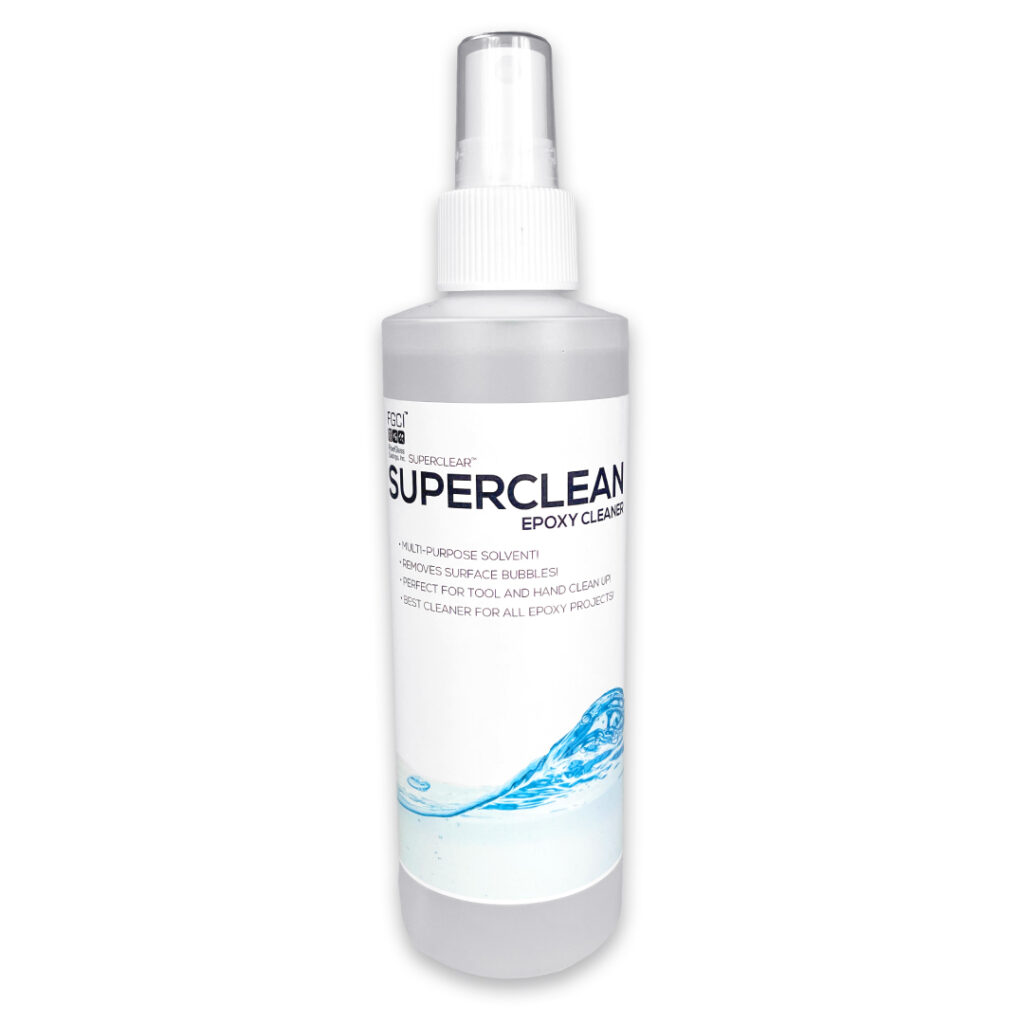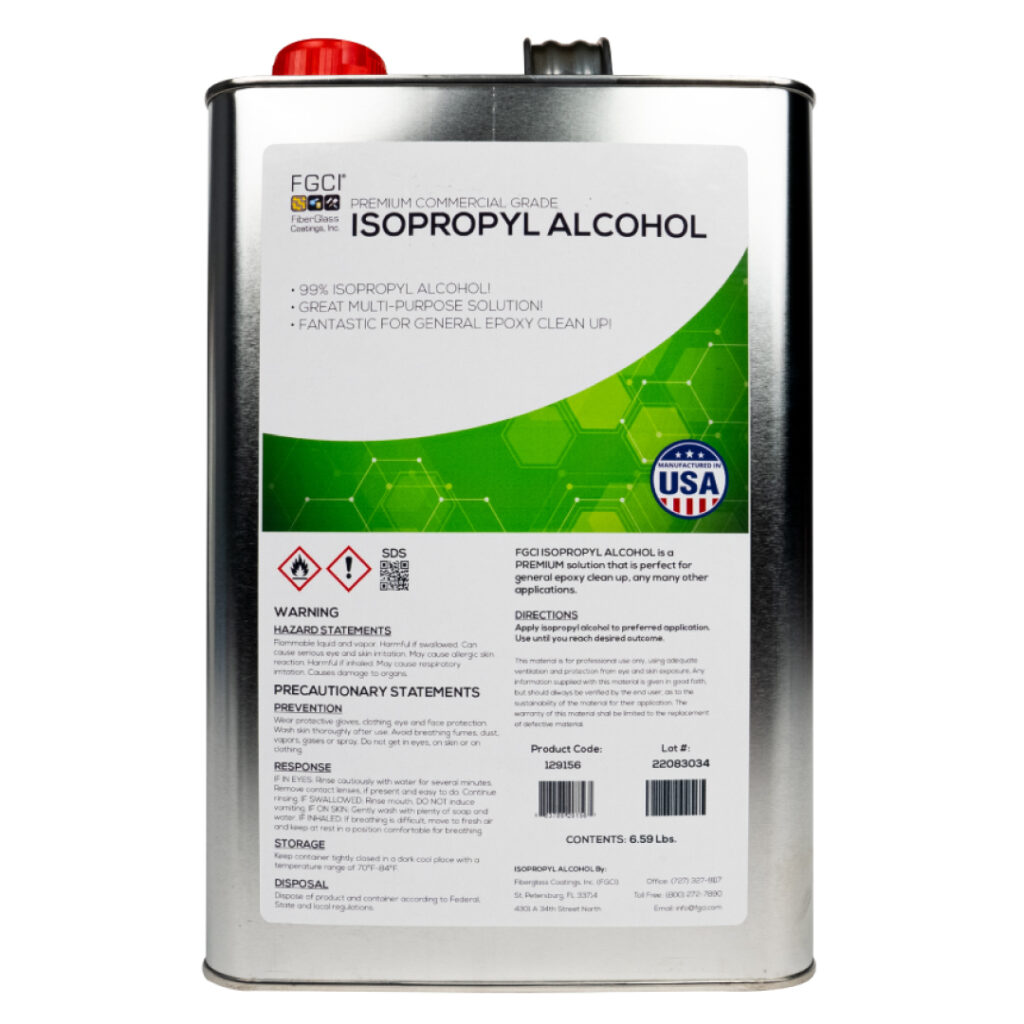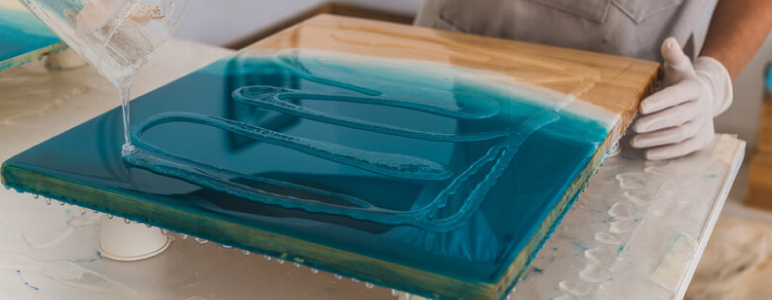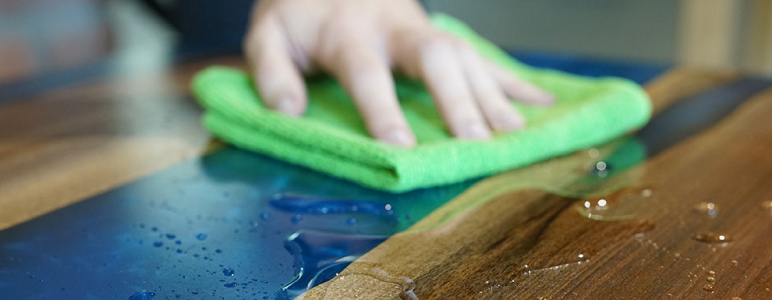How to Clean Up Epoxy Resin
Introduction
Epoxy resin projects can be messy. But with the right tools and techniques, cleaning epoxy resin doesn’t have to be a challenge. In this article, we’ll tackle the best materials, tips, and tricks to ensure an easy cleaning procedure – no matter what stage of the epoxy process you’re in.
Helpful Materials for Cleaning Epoxy Resin
Recommended Solvents for Cleaning
At Super Epoxy Resin Systems, we offer the best cleaning solution available for your epoxy resin projects: SuperClean Epoxy Cleaner. This multi-purpose solvent is not only perfect for removing excess epoxy from tools and surfaces but also for prepping your surfaces for the next epoxy pour. With a base of Isopropyl Alcohol and added proprietary ingredients, SuperClean Epoxy Cleaner is the best product to use on your cured or un-cured epoxy.
Second only to our uniquely formulated SuperClean Epoxy Cleaner is Isopropyl Alcohol 90% (or higher). Unlike other alcohol-based solvents, Isopropyl Alcohol is pure alcohol with a 100% concentration. It is generally considered safer than some other types of alcohol, making it the go-to cleaning solution for DIYers. For the most effective clean possible, we recommend using an Isopropyl Alcohol concentration of 90% or higher; lower concentrations may not flash off quickly enough, which could dilute your epoxy resin and cause it to cure soft or tacky.






8 Comments. Leave new
I know its a 2 to 1 ratio. I assume its a volume not weight.
Hope its volume.
Thanks
Hi Richard! Our deep pour epoxies have a mix ratio of 2:1 by volume. We have helpful information on how to measure by weight on our Epoxy Calculator page. You can check that out here: https://www.superepoxysystems.com/epoxy-calculator/
How do you remove air bubbles from the epoxy coating before it hardens
Hey Simon!
Great question! Air bubbles can typically be removed by quickly passing a heat gun over the epoxy, at least 6 inches away from the surface. Usually all you need is a couple of brief passes to break the surface tension and allow the bubbles to release that way. If you’re seeing bubbles during the mixing process, you may need to adjust your mixing methods. Mixing too quickly can incorporate air into the epoxy, making it pretty tricky to remove afterwards. Mix slowly, like stirring a full, hot cup of coffee!
Let me know if you have any other questions!
– Superclear Customer Service
+ for the post
Cool + for the post
How can i remove resin out of my kitchen sink
Hey Sandra,
Great question – If the epoxy resin hasn’t solidified, you can use our Superclean Epoxy Cleaning Spray or Isopropyl Alcohol with a concentration of 90% or higher.
Apply the cleaning solution to the epoxy, let it soak for a few moments, and then gently wipe it off.
However, if the epoxy has already hardened, you’ll need to sand the surface with an abrasive material. Unfortunately, epoxy is not easy to remove once fully cured – so sanding is often the most effective method for removal in this case.
I hope that helps! Have a great one!